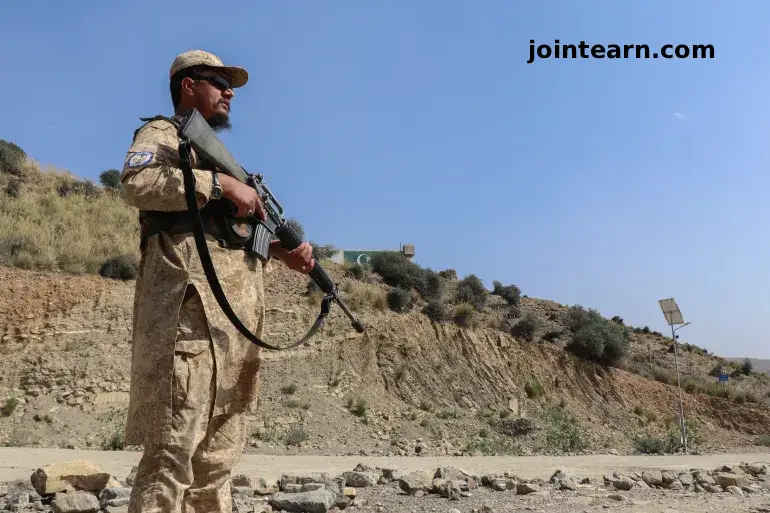
Islamabad presses Kabul to curb the Pakistan Taliban as regional mediators Turkiye and Qatar seek to defuse escalating hostilities.
Islamabad and Kabul Return to Negotiating Table in Istanbul
Islamabad, Pakistan — Pakistan and Afghanistan have agreed to resume peace talks in Istanbul, marking another attempt to resolve their growing diplomatic and military standoff. The renewed dialogue comes after a week of violent border clashes that left casualties on both sides and heightened fears of broader regional instability.
According to Pakistani officials, the latest round of negotiations will continue under the mediation of Turkiye and Qatar, two key regional powers seeking to de-escalate the crisis. The decision to extend talks followed a tense four-day session that ended in deadlock earlier this week.
“Pakistan has once again emphasized that Afghan soil must not be used for terrorism against Pakistan,” a senior security official told Al Jazeera on condition of anonymity, citing the sensitive nature of the discussions. “We value the constructive role of our hosts and remain committed to finding a peaceful solution.”
Mediation Efforts by Turkiye and Qatar
Afghan and Pakistani media reports confirmed that after direct intervention by Turkiye and Qatar, both sides agreed to remain in Istanbul for further dialogue. The mediators played a crucial role in reviving talks that had collapsed amid mutual accusations and diplomatic frustration.
Earlier this month, fierce border skirmishes along the Durand Line killed soldiers and civilians, prompting both governments to seek third-party mediation. The clashes led to a temporary ceasefire, signed on October 19 in Doha by the defence ministers of Pakistan and Afghanistan, in the presence of Turkish and Qatari officials.
Despite the ceasefire, tensions remain high as both countries accuse each other of harboring militant groups responsible for recent cross-border attacks.
Pakistan Demands Crackdown on Tehreek-e-Taliban Pakistan (TTP)
The central sticking point in the dialogue remains Islamabad’s demand that the Afghan Taliban government rein in the Tehreek-e-Taliban Pakistan (TTP), also known as the Pakistan Taliban. Formed in 2007 during the US-led “War on Terror,” the TTP has waged a brutal insurgency targeting Pakistani security forces and civilians for nearly two decades.
Pakistan claims that TTP fighters operate from safe havens inside Afghanistan, planning and launching attacks across the border. Kabul, however, denies these allegations and insists that the TTP issue is “an internal Pakistani matter.”
The Afghan Taliban, who reclaimed power in August 2021 following the withdrawal of US troops, have historically viewed ISIL-K (ISIS-K) as their primary enemy and have rejected claims of cooperation with anti-Pakistan groups.
Pakistan’s Strong Rhetoric and Warning of Escalation
After the earlier round of talks failed, Pakistan’s Defence Minister Khawaja Asif warned that Islamabad could consider military options if diplomacy fails. In a statement posted on X (formerly Twitter), he accused the Afghan Taliban of “pushing Afghanistan into another cycle of conflict” and of maintaining a war economy that benefits from ongoing instability.
“The warmongers among the Taliban regime, who have vested interests in continued unrest, should know they have misjudged our patience and resolve,” Asif said. His remarks drew widespread attention and prompted fears that Pakistan might resume air strikes inside Afghanistan, as it has done in past operations targeting TTP strongholds.
So far, the Afghan Taliban government has not issued an official response to Asif’s statement.
Analysts: Dialogue Marks Possible Shift in Strategy
Security analyst Abdul Sayed, a Sweden-based researcher who tracks armed movements in South and Central Asia, said Pakistan’s willingness to continue negotiations may indicate “a tactical recalibration.”
“The decision to resume dialogue suggests that either the major points of contention have been softened, or Pakistan has shown flexibility at the mediators’ request to avoid further confrontation,” Sayed explained.
He added that while Pakistan wants Kabul to act decisively against the TTP, the Afghan leadership views such demands as infringements on its sovereignty, creating an ongoing diplomatic stalemate.
India’s Role and Regional Complications
Defence Minister Asif further alleged that India was fueling unrest in Pakistan through its covert ties with the Afghan Taliban — claims Islamabad has made repeatedly without providing public evidence. India, in turn, accuses Pakistan of supporting militant groups that operate in Kashmir and other contested regions.
Interestingly, diplomatic ties between India and the Afghan Taliban have warmed in recent months. Afghanistan’s Foreign Minister Amir Khan Muttaqi visited New Delhi earlier in October, signaling a possible thaw between the two governments. Analysts say this shift could have intensified Pakistan’s concerns about India’s growing influence in Kabul.
Sayed noted that “within the tensions of Islamabad-Kabul relations, India remains a critical and often disruptive factor,” pointing out that recent border escalations coincided with Muttaqi’s visit to India.
Fragile Peace and the Road Ahead
The Pakistan-Afghanistan border — stretching over 2,600 kilometers — has long been one of the world’s most volatile frontiers. Despite historical, cultural, and economic ties, the two neighbors remain locked in disputes over security, refugees, and cross-border militancy.
While the latest round of talks in Istanbul offers a glimmer of hope, analysts warn that lasting peace depends on trust-building measures and genuine counterterrorism cooperation. Without that, the risk of renewed violence looms large.
For now, both Islamabad and Kabul are treading a narrow path between diplomacy and confrontation, with regional mediators racing to prevent another South Asian border conflict from spiraling out of control.


Leave a Reply